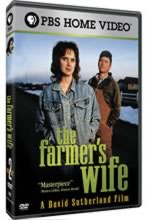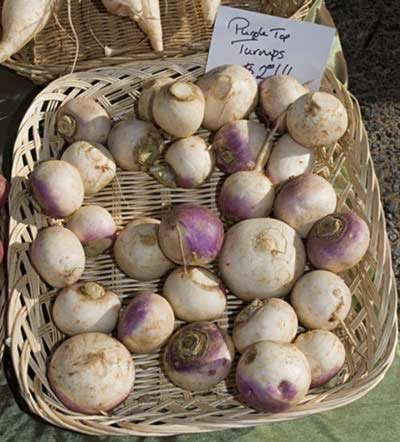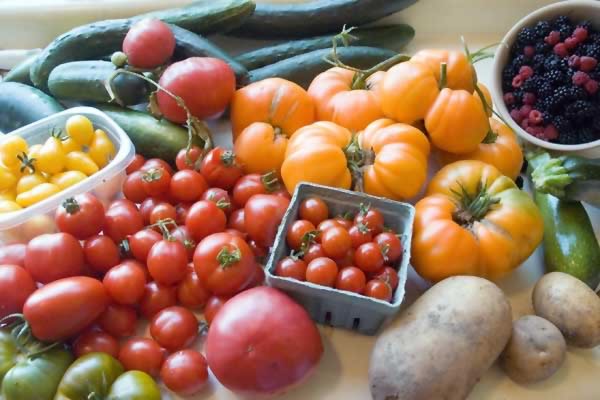16 cheap ways to eat healthy
Eating healthy is important.
Eating healthy:
- Lowers disease risks
- Increases productivity
- Gives you more energy
- Makes you stronger
You probably think eating healthy is expensive. I'll be honest — it is. But there are tricks to spare your savings account and keep it low cost. Here are sixteen ways to eat more healthily while keeping it cheap. Continue reading...
Thrifty Tips for Shopping Garage Sales from the Yardsale Queen
This is a guest-post from Chris Heiska, The Yardsale Queen.
Some people believe the myth that there's only junk at yardsales and thrift stores. That is absolutely not true. Buying at yardsales doesn't necessarily mean that you are buying someone's used, dirty castoffs. I often find Christmas wrapping paper still attached to the box, 
or a wedding card tucked inside of a box that was probably a duplicate wedding gift (and now the present that probably cost $40 in the store is selling for $5 at a yardsale).
The nicer stuff does get snapped up quickly, so persistence is the key. I often stop by the thrift store in my town two or more times a week to see what "new" stuff has come in. Often the cashier says to me, "Oh, we just put this out today."
How To Escape the Gift Trap
Amanda recently sent J.D. an e-mail looking for advice about gift-giving:
My husband and I have made huge lifestyle changes since our son was born with congenital heart disease four years ago. He's had five open-heart-surgeries, and we've had some killer medical bills. My husband stays home with both of our kids to help prevent Liam from getting sick too often, so we've gone down to one income, one car, basic cable, and a really aggressive budget.
One of our worst budget breakers however is gifts. I have eleven nieces and nephews, two kids, etc. At Christmas we've convinced both sides to just do a name exchange and then we only have to buy for two nieces/nephews on either side, which helps and we've just outright stopped exchanging gifts with our brothers & sisters, but there are still our parents, his grandparents, kids of friends who have birthday parties, and graduations, weddings, and baby showers!
What if you’re frugal but your roommates aren’t?
Eleanor wrote with a question that could test even the mightiest personal finance expert. "What," she asks, "can you do when you want to save money and your roommates don't care?"
I share a house with four roommates. This saves me at least $200 a month from what I would be paying if I lived in an apartment. But roommates raise expenses in other, unexpected ways. I have been trying to cut down on monthly bills and am finding it incredibly difficult.
For example, I live with roommates that want digital cable and high-speed internet bundle. I can live without the cable (I don't watch TV) and don't mind having a lower-speed connection. But because three of my five roommates want the more expensive package, that's what we get, and instead of splitting a $60/month bill five ways we're splitting a $100/month bill. I end up paying more money overall. While I can simply not watch cable and argue with them that I won't pay for that fractional cost of the bill, there's no way I can somehow use a lower speed internet connection without some serious technological finagling.
Personal finance on film: The Farmer’s Wife
"It makes me feel so greedy and selfish to see these people struggling, almost losing it all, over a $100 debt, and I go out and spend $100 on yarn." — Kris, while watching The Farmer's Wife last weekend
 Since starting Get Rich Slowly, I've been searching for movies and television shows that highlight the financial struggles of real Americans, shows about personal finance "in the wild". The first one that I can recommend without reservation is The Farmer's Wife, a PBS Frontline documentary from 1998.
Since starting Get Rich Slowly, I've been searching for movies and television shows that highlight the financial struggles of real Americans, shows about personal finance "in the wild". The first one that I can recommend without reservation is The Farmer's Wife, a PBS Frontline documentary from 1998.
The film follows a couple from rural Nebraska for three years (1995-1997) as they struggle to save their farm from bankruptcy. Darrel Buschkoetter was raised a farmer; he never wanted to be anything else. Juanita grew up in town, but when she married Darrel, she became a farmer's wife. The Buschkoetters have three young daughters. They want more children, but they can barely afford the ones they have. Continue reading...
How to eat vegetarian on the cheap
I recently posted two articles for frugal carnivores: a guide to cheap cuts of beef and another one on how to buy a side of beef. GRS-reader Sally has produced an introduction to eating vegetarian for cheap. Though her tips are for herbivores, many are useful to omnivores, as well.
About a year-and-a-half ago, for health reasons, my husband and I committed ourselves to a mostly vegetarian lifestyle. At home we eat entirely vegetarian; when we eat out we allow ourselves to choose meat. It's also a priority for us to avoid the pesticides in non-organic produce and the hormones that come with non-organic dairy products. Here's how we eat a ton of fruits and veggies at a fraction of the price you might expect.

Our top strategy is to eat locally-produced foods as often as possible. (Actually, eating locally is a priority for us based on both our physiological needs and the need for Americans to reduce oil consumption. Produce at the grocery store has traveled, on average, 1500 miles to reach us!) Because we live in an Atlanta apartment with no yard or porch, we are unable to grow anything ourselves except for herbs — so we seek out local farmers. (If you'd care to try an urban garden, this video is a good resource.) Locally-grown foods are sold to us at the peak of their flavor and nutritional value, making them more enjoyable. Buying from local farmers, we are also able to ask whether the foods we are buying have been grown using pesticides. (The organic certification process is expensive for small farmers, so some small farmers may use organic methods but not have government certification for years, if ever.) Continue reading...
Gardening 101: Plan Today for Summer Success

This was an actual weekend harvest from our garden last August.
At Get Rich Slowly, we get many requests for information about starting a vegetable garden. This is huge topic, and really enough fodder for an entire website. If you're a novice gardener you will benefit by asking yourself six questions before mail-ordering seeds or heading to your local nursery. Now is the time to do your research so that you'll be ready for planting season.
Do you actually like to eat vegetables?
If not, focus on fruits and herbs, edible and ornamental flowers, and a favorite veggie or two. A well-tended garden will produce a lot of vegetables. If you are lukewarm about zucchini then pass up that beautiful seedling. (Or go introduce yourself to your five nearest neighbors so that you can share come July).
What is your gardening space like?
This is probably the most important question for the novice gardener. If you are starting from bare dirt or, more likely, a patch of lawn, you have some work to do. The plot needs to be evaluated for sun and wind exposure, moisture/drainage, soil pH and elemental content, pests, and other factors.
The cost-per-day expense chart
Elizabeth has a lifehack that allows her to manage both money and space. She writes: "This helped me curb my lifestyle choices when I was in high school and first on my own." Here is her guest entry.
Possessions scare me. My parents are pack-rats, and their house is full of things that have no right to be there. Desk space is taken up by dirty coffee cups, stacks of notebooks, and priceless, irreplaceable piles of loose paper. My Mom's office, the biggest room in the house, has three narrow pathways: one to her computer, one to her bathroom, and one to her closet (which will not open because there is too much stuff inside and outside of it). Scary!
When I became a college student with a (very small) room of my own, I learned how rewarding it is to be in control of your living space, and how important thriftiness is on a student-sized budget. This is how I came up with the following method of worth assessment: the cost-per-day expense chart. How much does something you own cost per day you use it? And how long until your assets break even?
Making the most of cheap cuts of beef
You don't need to buy a side of beef to get cheap, great-tasting meat. Excellent inexpensive steaks and roasts are available at every supermarket. Here's a brief guide to common cuts. The information in this article is derived from two Cook's Illustrated pieces: "An Illustrated Guide to Beef Roasts" (Nov/Dec 2002) and "Tasting: Inexpensive Steaks" (Sep/Oct 2005).
Inexpensive Steaks
 These steaks were priced $6.99/pound or less when Cook's Illustrated tested them in 2005.
These steaks were priced $6.99/pound or less when Cook's Illustrated tested them in 2005.
Best Cuts for Pan-Searing
Boneless shell sirloin steak (a.k.a. top butt, butt steak, top sirloin butt, center-cut roast) — Very tender texture and beefy flavor. Look for a one-pound piece of uniform 1-1/4 inch thickness. Continue reading...
10 Ways to Save Money on Books
I used to spend thousands of dollars a year on books, most of which I never read. Recently I've begun to trim my book spending. I spent nearly $3000 on books in 2003, but that number dropped to $700 last year. How did I do it? Through self-discipline and some common sense tricks.
1. Avoid new releases
New releases sell at a premium. Sometimes you can get them cheap at Costco or Amazon. It's best to avoid them completely. Put them on hold at the library. If you're tempted to buy a newly-released book, ask yourself: "Why do I need to own this now? Can I wait?"
2. Read reviews
Reviews help separate the wheat from the chaff. It's a terrible feeling to spend $25 on a book only to discover it's awful. Amazon is an excellent source for reader opinion. I also like Metacritic and The New Yorker. Find a source that you trust, and rely upon it to screen books.